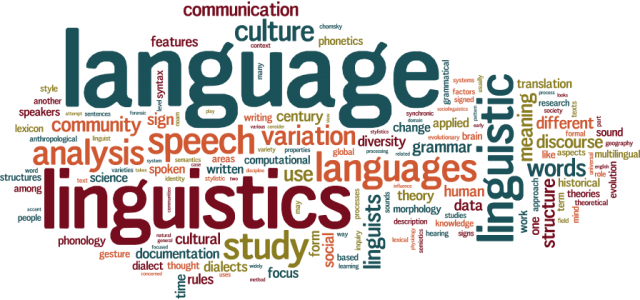
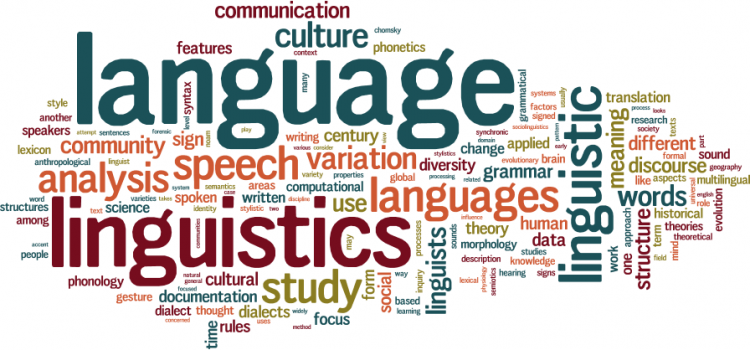

LINGUISTICS AND AFRICAN AGENCY
Words have meanings, but meanings are dictated –like everything else by those with power. Words play a critical role in articulating reality and that means reality is a subset of linguistics and agency. No word is innocent in the hands of power, yet every word is dangerous when applied to the oppressed.
Language in itself is an unstable vehicle, which in the hands of the modern sophist has the potential to mislead. It is naive to ignore the significance of linguistics and the utter need to engage this ignored discourse in Pan-African studies. And just like there is a body, which monitors and controls the English language we need such a dedicated discourse serving our linguistic interests. [1] While some words such as ‘good’ and ‘bad’ can be mapped across the global language spectrum, the ideological attachment to terms needs also to be mapped to favor the speaker, regardless of the language spoken.
The conquest of Africa was not only a physical process, it was also a re-definition of the African reality relative to the European worldview. Introducing paradigms from Europe which favored Europe; notions of identity based not on geography or ethnicity, but relative color. So even today terms such as “crimes against humanity”, “genocide”, and “holocaust” used to articulate the African experience but are made ineffective because they are still defined and controlled outside of African interests.
Right now a 60-year linguistic war is waged on forums and radios over if Israel “occupied” or “controlled” the West Bank. You find prolix debates spanning thousands of pages just over these two words. Because language defines reality, as much as reality defines languages. Its high real estate makes huge differences for those who comprehend these matters. So how could a term like “black” people not need a heavy debate? When so much is attached to that color-based term? Yet, for all the instances it is used, there is rarely any clarity of its meaning.
To speak means to be in a position to use a certain syntax, to grasp the morphology of this or that language, but it means above all to assume a culture, to support the weight of a civilization. — Frantz Fanon
Muslims behaving badly are Islamist, so what are Christians behaving badly? But what they do is flood us with useless terms knowing it is not in the nature of the majority to question them. Clearly, “terrorists” and “Islamists” are so subjective to only be useful as political terms to be used in unilateral assaults against Muslim people.
A word on its own might not be Eurocentric such as ethnicity. But if you say that dress looks very ethnic now you have changed something in how it is being applied. Ethnic now refers to non-White, which means everyone on Earth other than the European normal. So how can a dress look ethnic relative to what? So Ethnicity is not a problem unless it excludes whites. Religion as a word hugs from Vodon to Islam to Serer, to the Catholic church to the Zoroastrians in Iran. Africans have religion, Arabs had religion prior to Islam, Europeans have religion everyone has religion so the word is not Eurocentric. Because all religions are equal. But when they now say spirituality vs religion that is now when the problems start. Structured religion vs spirituality. Eurocentrism holds onto the structured stuff and Africans hold onto the loose stuff that is without shape or form; without sophistication, ritual, or orthodoxy. This is why Catholics can mix Pagan culture with Christianity and create an orthodoxy while Africans doing it becomes syncretism. So how can all those complex Vodun rituals be unstructured or unorganized? So where does this organized religion come from? Organized vs what? Disorganized. The deeper part of this religion vs spirituality is that it is a modern dichotomy. Never existed anywhere else but in the European language and thought. Even the concept of religion in Asia and the Indian Sub-continent was alien until Europeans brought it there and said Hinduism (in all its diversity) is now a religion like Christianity and Islam.
WORDS GET IN THE WAY
And as Gloria Estafan said sometimes they get in the way of our reality. We only have words. What else do we have to explain reality some confuse our words as the absolute way to describe an experience but tell me how many times have you tried to explain a very real experience yet found no words to convey it even to yourself? Too many times we search for words for reality only to end up corrupting the nature of an experience.
LANGUAGE AND GEOPOLITICS
There is no denying the billion-dollar linguistic industry of the capitalist system; correct wording for marketing is a serious activity in fashioning consumer responses. Language is war, and that war begins with words, not bombs. Conquest is not only done down the barrel of a gun, but through language. In politics, the careful wording done to avoid liability testifies to the delicate, yet critical significance of words. In the media arena, the neologism created to marry and casually associate Islam to terror, shows the power words have at sculpturing perception: Terrorism is a highly contested concept and It can be `flexibly constructed’ to suit ideological, nationalist, propagandist and political objectives.
We have been fighting on a language chessboard where all the linguistics pieces are white
With its origins in revolutionary political violence, it is now the principal fear tactic by the USA and her allies for shifting their foreign policy around the globe. [Fisk] Words, and words alone, can mask hell and make it seem like heaven; take the most horrendous human acts and make them seem benign. Even today we see money being thrown into standardized words for political and social objectives. There can be no denying that in the area of African reality, sociolinguistics requires a full discourse.
Ontology in analytic philosophy concerns the determination of the quality of “being.” It is the inquiry into being in so much as it is being. Epistemology which follows now ask the question “how do i know what I know,” the quality of knowing. But how can you even get to ontology or epistemology when you need words to describe yourself and to enquirer? So words then become important. But words are arbitrary sonic symbols that we invest a whole lot of meaning into. Then the quest to comprehend that entire process is prudent on the part of every language user. And because language is an extension of thought; a tool for thought. It is an arbitrary oral or written symbol representing (communicating) an idea inside one’s mind. Then if the tool has poor reference or is flawed in how it describes “self” then even ontology is in question.
Foucault claimed that since man’s view of reality is contingent on how they see reality, it followed, then, that the manner in which language describes that reality means that language does not reflect reality so much as language creates it. Chomsky states that those who control terminology shape them in their own interest. Thus “people” as defined by the United States constitution were initially defined to protect liberated African Americans from being deprived of due process. However, that definition has done more for allowing corporations to inherit all the rights of a “perso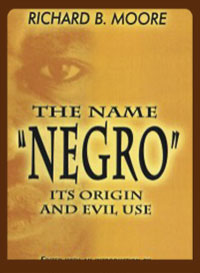 n.”
n.”
“Freedom” in South Africa, which remained unclear, vague, and ultimately post-94, has revisited South Africa and now that very “freedom” is defined by right to destructive vices: A freedom that has no economic liberation, or social agency.
In his book, Richard B. Moore expresses: “Human relations, cannot be peaceful, satisfactory, and happy until placed on the basis of mutual self-respect. The proper name for people, has thus become, in this period of crucial change and rapid reformation on a world scale, a vital factor in determining basic attitudes involving how, and even whether, people will continue to live together on this shrinking planet.” Language is a factor in understanding the African Holocaust even in how demographics are understood. The highly contested number of people disrupted or lost to European slaving activities is partly locked in definitions.
The term “Slave trade” has the power to mitigate or mask the reality of the African Holocaust. So if we measure “slave trade” we get the European promoted number of 10 million arriving (notice the word arriving to further limit Western culpability). However, the minute we change to : “Not only was Transatlantic Slavery of demographic significance, in the aggregate population losses but also in the profound changes to settlement patterns, epidemiological exposure and reproductive and social development potential” an entirely new figure emerges. Maulana Karenga notes that “slave trade” is a deceptive term that linguistically neutralizes the cruelty, inhumanity and exploitation as just consensual business. European historians have generally been very skillful at using language to define reality so that African casualties by their hands are very low but the casualties by African or Arab hands are as high as possible.
In speech are embedded, like fossils, the sum total of a people’s values, attitudes, habits, aptitudes, in short a people’s worldview–Ahmed Sheikh [2]
UNIDIRECTIONAL WORDS
This phrase — “Israel’s right to exist” — is thrown around in American politics with such abandon that you’d be forgiven for thinking that a state’s right to exist is a fundamental principle of international relations (IR) that those stubborn Palestinians just refuse to acknowledge–Michael Luciano
Unidirectional words describe Israel’s “right to exist” without drawing into question the Palestinians dual right to exist. In American politics “Right to exist” in the billion and one times it is used only, exclusively, unapologetically is only used for Israel. So Israel cannot use this phrase to defend its right to exist by denying other their human rights to also exist. [7] Only one point of view is shown, and it all starts in the war of words.
Words and terms are political weapons with subtle yet powerful inbuilt bombs. Take for example antisemitic and homophobia, they are both unidirectional; there can only be applied in one direction, to attack someone outside of their group. Unlike “Racism” which can be applied bi-directionally by the oppressed, but just as easily by the oppressor to describe the act of resisting oppression. Antisemitism cannot be used by the anyone other than the Jewish agenda. Homophobia could never be used by non-gays to describe gays. The ADL and AIPAC can use antisemitism, without fear of it being used against them in any conventional discourse. Words are crafted with this in mind to protect the authors of the words. In a flash, dropping antisemitism into a newspaper only brings up pictures that serve the interest of pro-Jewish groups. Despite the volume of racism Africans face, they have no word which can communicate the uniqueness of that oppression like Jews and gays. Holocaust, genocide, Diaspora words traditionally only assigned to describe the Jewish experience. These words are vehemently guarded for unidirectional usage. As Mazuri says it is almost as if they had copyright. But it proves the argument that words are serious “real estate.”
Linguistic Laziness
However, as politics and culture change in our expanding world, rarely have linguistics shifted to accommodate. With the exceptions of a few neologisms, there is linguistic laziness in coining new terms that speak to new realities. So words are handed down like family heirloom across the generations. But these old words function in a different political-cultural landscape, thus blurring realities and distorting history. From the agrarian world to the digital revolution certain words have remained unchanged. [1] The so-called Arabs of the Sudan are in fact largely an Arabized African people, but as the reality of 1st language speakers left the ethnic boundaries of being Arab, the terminology did not move as fast to create new definitions for these “new Arabized people.” A future scholar reviewing history would formulate confusing conclusions if they assume that terminologies are static across time.
All words and expressions are backed up by agency. The minute a word leaves someone’s lips and hits someone else’s ears the perception changes, and it might fail to communicate what the user intended. “I am religious” has radically different implications if Muslim to Muslim, Christian to Muslim, or religious person to atheists: Audience sensitivity and perception is key. The power of Western politics often means their application of words such as “fundamentalist” overrides all local and standard definitions. Western agency not only has unilateral access to the international microphone but also the power to make sure their meanings are normalized across diverse linguistic and geographical communities.
The power of Western agency means that they can construct words that speak exclusively to their reality. “Philosophy” came from the Greeks, there is no true parallel in African languages, does that mean “Africa never had philosophers?” We could spin it back and say “Europeans never had Ubuntu.” Philosophy is just a word created in Greece to suit Greek paradigms. It is later applied to favorable civilizations, considered “advanced”, with the exclusion of Africa, especially what is called ‘Sub-Saharan Africa.’ The seven climes (from Greek meaning “inclination”) was a Greek-centric notion of dividing the Earth into zones in Classical Antiquity. The “norm” was the Mediterranean (Ancient Egypt, Greece, Rome, etc). The first clime (Sub-Sahara Africa) was of intense heat and did not permit civilization and out of this Greek model of civilization comes the modern world view of a sub-Saharan Africa, a direct descendant of Greek climes.
So Africa’s development or role in intellectual progressiveness is hung on a word made, shaped, and espoused by Europe. European behaviorism is good at putting value on dichotomizing abstract thought and explaining-away emotion, yet show no inner appreciation of spirit: Is music only valuable it if is discussed to death and written down? If a word controlled by European interest is hung over Africans as the mark of advancement and Africans are forced to respond, would not the thousands of African proverbs not shed light on African’s “love of wisdom” (i.e. philosophy)?
Agency and Language
The increasing power of the gay lobby is another area which proves the case of the relationship between language and agency. In a few decades, words have started to change form to accommodate the gay rights campaign: gay (use to mean happy)[3], marriage (use to mean man and woman), family (use to men husband and wife). [6] There is no stronger case of linguistic accommodation.[5]”Language is a fundamental tool for shaping identity and community, including the expression (or repression) of sexual desire. Speaking in Queer Tongues investigates the tensions and adaptations that occur when processes of globalization bring one system of gay or lesbian language into contact 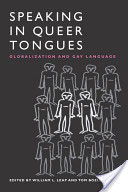 with another. Western constructions of gay culture are now circulating widely beyond the boundaries of Western nations due to influences as diverse as Internet communication, global dissemination of entertainment and other media, increased travel and tourism, migration, displacement, and transnational citizenship. [5]
with another. Western constructions of gay culture are now circulating widely beyond the boundaries of Western nations due to influences as diverse as Internet communication, global dissemination of entertainment and other media, increased travel and tourism, migration, displacement, and transnational citizenship. [5]
How did ‘bad’ come to mean ‘good’? Had this linguistic innovation happened in the outskirts of Calcutta it would never make sense anywhere but in that local community. Just like idiom which are colloquial metaphors—a term requiring some foundational knowledge, information, or experience, to use only within a culture, where conversational parties must possess common cultural references. [1] And the power of African-American music created and imposed “bad = good” as an urban shift in the wind of linguistic globalization.
False Dichotomy
Language has always being a breeding ground for setting up a false dichotomy. And by a systematic process of normalizing these views are accepted without challenge: Assuming there are only two alternatives when in fact there are more. For example, assuming the classical Western dichotomy that by holding religious views it means you are unscientific; which is not a conflict for most outside of Europe’s geopolitical walls. The very suggestion of a “Black African” implies, without even stating it, that there is also another color variant on African. Sub-Saharan Africa is another perfect example of this, where the illusion of “two” Africa’s is made real only in language; but never in reality. Another example is Spirituality vs. Religion. (see section)
Language and Thought
The limits of my language means the limits of my world–Ludwig Wittgenstein
There can be no undermining how both philosophies of language influence thought and vice-versa. Thus language is a key aspect of culture and culture is key in determining one’s language. The Sapir–Whorf hypothesis (aka Linguistic relativity) suggested that language limited the extent to which members of a “linguistic community” can think about certain subjects.
Sticks and stones will break my bones but words will never hurt me (false statement)
It is linguistic warfare to remove people’s ability to even reference themselves and to describe their unique social reality. Semantic magic tricks make large problems vanish in thin air by shifting linguistics to offer a bandage to the oppressor conscious. The “black problem” vanishes once the word “Previously disadvantaged (South Africa).” It sooths the consciousness of the European settlers and allows them to eat their dinner in peace without looking at the troubling word “African people.” And beyond that it shapes perceptions and neutralizes the racist overtones in the society. And likewise, you can vanish an entire Palestinian village with the right usage of words, causing their condition and humanity to evaporate by labeling them ‘militants.’ In opinion polls, most Americans supported the concept of a doctor helping a patient end a life with painless means, but that same support immediately dropped once it was described as “assisted suicide” [Grossman].
The interdependence of thought and speech makes it clear that languages are not so much a means of expressing truth that has already been established but are a means of discovering truth that was previously unknown. Their diversity is a diversity not of sounds and signs but of ways of looking at the world–Karl Kerenyi
Speaking French means that one accepts, or is coerced into accepting, the collective consciousness of the French, which identifies blackness with evil and sin. In an attempt to escape the association of blackness with evil, the African man dons a white mask, or thinks of himself as a universal subject equally participating in a society that advocates an equality supposedly abstracted from personal appearance. Cultural values are internalized, or “epidermalized” into consciousness, creating a fundamental disjuncture between the African man’s consciousness and his body. Under these conditions, the African man is necessarily alienated from himself– Frantz Fanon
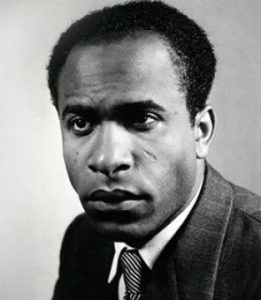
Frantz Fanon
The complicated dynamics behind word usage is solely rooted in a battle of self-interest. Many times Africans are trapped with popular anti-African sentiments such as “Africans enslaved other Africans,” “Egyptians weren’t black,” etc. Trapped fighting battles from a strategic disadvantage because the terms and definitions employed serve solely in a Eurocentric reality that have been sculpted to destabilize the African historical foundation.
Technically speaking, the only difference between the prison complex and domestic slavery in Africa is linguistics – nothing else. If we speak of the African Holocaust then facts of so-called “Slavery by Africans” becomes redundant as the African Holocaust does not focus on systems of imprisonment, but moreover, the wholesale inhumane destruction visited upon African people. In addition, African Holocaust is not limited to the Transatlantic Slave Trade but the broader horror that also encompasses colonial rule and more over the legacies of those systems. But English has one word for slavery, despite absolutely different levels of ‘slavery’, one where someone is a member of a family and the other system where someone is chattel, but we have one word to describe these realities. When it suits the user we hear terms such as “corvee“, “indentured labor” and “prison system.”
ARCHAIC MEANINGS
Some like to suggest that the original words had certain meanings and thus we should be sensitive to them. But the only words we need to be worried about is the contemporary usage of words, not what they meant 10,000 years ago. It makes no difference what the word Africa meant 4000 years ago to people living in the Greek Isle, maybe it meant “monster”, we are exclusively concerned with the meaning of words right now. Because words are ultimately abstract. God probably did not mean God when it first entered language. “Black” is not a transhistorical word, so there is not point saying “Ethiopian” really means “Black face or burnt face” because that is an archaic meaning with absolutely no relevance to our contemporary societies. So today within modern language usage Ethiopian only means Ethiopian. It is like saying the origin of marriage had another meaning so we should not use it. But almost every word we use today had an archaic meaning. Some words like Holocaust, Diaspora, Genocide had different or no meanings, and those meanings changed.
WAR OF WORDS
So an ‘occupation’ can become a ‘dispute’. Thus a ‘wall’ becomes a ‘fence’ or a ‘security barrier’. Thus Israeli colonization of Arab land contrary to all international law becomes ‘settlements’ or ‘outposts’ or ‘Jewish neighborhoods– Robert Frisk
There can be no political discussion of any issue in our world today without first establishing the wars of words. Political rhetoric is designed to be deployed in the service of public policy.[1] So if 5 People protest in Iran it is an UPRISING!!, if 5000 People riot in the UK, it is civil disobedience. Language shapes perception, creating out of similar realities two completely different understandings.
Reasonable doubt is a common tactic to thwart any opposition, words such as controversial and conspiracy theories give the reader, regardless of how solid the research is, that it cannot be absolutely trusted. Conspiracy theory is the highest level of reject of an argument without actually having to deal with the merits of the argument, it is an almost flawless tactic for curbing institutional analysis (Chomsky). Words hide all kinds of deception “co-belligerent terrorist” makes almost everyone a terrorist, “imminent threat” so diluted can be used and abused at will. [4]
| West | Non-West Interest |
| Freedom Fighter or Rebel | Terrorist/ Militant |
| Collateral damage | War crimes- killing innocents |
| Monarchy? regime | Dictator1)They always need to remind us “He was a dictator”. But as critical thinkers, we are trained to challenge everything worthy of a challenge. What actually is a dictator? And why is it so central to so many discussions about Good African leaders? You might find that the word dictator is actually of no true value. It is a word detractors use to tarnish the character of anyone they do not like. Just like how the word Cannibal was used during the 18th century or how the word communist was used during the McCarthy Witch hunt. Or Islamist in our times (still have no idea what that term is supposed to mean). Have you noticed that Saudi (which is a dictatorship) is usually called a regime? There are some terrible democratically appointed devils on this planet Netayanhu, Trump, Modi, etc. How many African leaders are democratically appointed? So do not accept the word dictator to mean anything–because it honestly has no value in reality. |
| Right To Exist | Occupation |
| Development Aid (1) | Bribery |
| Civil War | Genocide (killing his own people) |
| Democracy | Two party state |
| Self-determination | Brainwashing |
| Patriot Act | Totalitarianism |
| Freedom of press | Propaganda |
| National security | Human Rights violation |
| Fog of War | Holocaust | Genocide | |
| Muslim allies | Islamist |
| Right Wing conservative | Terrorist Establishing Sharia |
| Riots , Opportunistic hooligans | Uprising |
| Political Prisoner | Terrorist |
| Combatants | Evil Terrorist |
| Passionate | Angry and Hateful |
| Established Fact | Controversial |
| Academic Consensus | Fringe theory |
| Mainstream opinion | Conspiracy theory |
| Settlers | Invaders |
| Intervention | Invasion |
That’s why American politicians and pundits were honestly infuriated by Omar mentioning the U.S. (and our mini-me, Israel), in the same breath as Hamas and the Taliban. If you just go by body count, the U.S. and Israel have killed far, far more people. In fact, it’s possible that more Palestinians died in the 40 hours of 1982’s Sabra and Shatila massacre than Israelis have been killed by Hamas in its entire existence. But we have reasons, good reasons, for killing people. Hamas and the Taliban do it just for the sheer joy of being evil. So we know that if Hamas and the Taliban had America or Israel’s power, they would do much worse things than we have. On the other hand, if the U.S. were invaded and occupied for 50 years by a country 1,000 times as powerful as we are, we’d never act like Hamas, because we’re good folks.
On the term moral equivalence 2)Moral equivalence | ILHAN OMAR AND “MORAL EQUIVALENCE,” A TERM OF PROPAGANDA INVENTED IN THE 1980S
We want peace, total peace and nothing but peace, and even if we have to fight the bloodiest battle, we are going to get it Holocaust–Hitler
Language and American foreign policy is amazing liberal and shameless: from stopping “Ethnic Cleansing” in Kosovo to saving the world against ‘”WMD’s” from Saddam, to saving the people of Darfur from “Genocide”, to putting a halt to Gaddafi “massacring civilians” in Libya. From Bush’s “Axis of Evil” and “War on Terror” to Obama’s “Network of Death” and “Staying the course” all highlights the danger of rhetoric. It has an almost passive plea to the heart and the mind while masking the horrendous inequity and genocide of women and children. And in its seemingly benign personality, it fails our critique even in the blatant face of human rights violations. Hitler too did this with words, this is why so many were lulled into immorality by the power of his command of the Germanic language. However, actions are more honest than language. This is why nature has an honesty that humans can only dream of achieving– because we have the power to deceive, obfuscate, and inveigle.
LOADED WORDS
Power is the ability to define reality and to convince other people that it is their definition–Wade Nobles
Within the walls of democracy there is a freedom of speech and justice component, within the boundaries of feminism there is a concept of equality, but this does not make either democracy, feminism or any ‘ism’ directly interchangeable with justice, freedom or human rights.
Africans must distinguish and apply their own concepts without casually borrowing pre-packaged terms which speak in favor of European interests. Because too often the terms used have other connotations and implications which come seeded in a linguistic nexus. Values of morality and perceptions of superiority are embedded to favor things founded in Europe over things founded in Africa. To suggest that human rights must morph itself into the pro-homosexual left liberal confusion is taking away from the purity of other people’s inherent ability to self-determine and attach value to their own definitions. African-centered human rights is articulated around community and life, thus when Europe speaks of promoting human rights some of these values actually are violations of African human rights. Therefore “Gay rights” linguistically looks like “Civil rights” and has been intentionally stealing sympathy solely on this bases. But regardless of the linguistic similarities, civil rights and gay rights are radically different in their moral and humanist foundations.
Someone once noted that we don’t speak with language, but through it: it is transparent to us, and we don’t even notice it. In our experience, our words do not represent concepts: they present them in a wholly transparent way. This is what I mean when I noted that native speakers do not normally speak in their language, but through it–Bradd Shore, Culture In Mind
AFRICA
Understand that there is no original name in the history of this continent that exists for our group. What we do have is people finding words like Alkebulan and projecting it back into antiquity, which is no different to using African in antiquity. No one in Africa used the word African, black, or Alkebulan in the 4th century AD. Africa is a name, like Billy or Hakim, or Kwame: black and negro are not names, they are descriptions—false ones at that.
The Amhara people never heard of Zulu people until maybe 200 years ago, for the 1000s of years of the great Ethiopian, Malian, and Egyptian empires they never heard of South Africa. South Africa never heard of Mali and Kush either. Zulu people do not even have a history of their origins in central Africa. The people of the interiors of Africa like the Bayaka and the people of Senegal like the Wolof and the Serer knew each other by their ethnic names. There was no name for us as a group–because there was no us as a group; this occurred in modern times. The Khoisan became “black” or “colored” when the European bumped into them. He chose that name for them because it suited his conquest set-up. Made no sense invading and stealing their Africa from them and then call them African. That is like a reminder of the true owners of the land. Better call them blacks, and coloreds.
For all the 1000s of years of their existence they had their own name for them and another name for the Bantu farmers that moved into their region. Semitic speaking Ethiopians (Amhara, Gurage, Tigray, etc) never once in their entire history looked at people in Kordofan or Gambela as the same group or sub-group as them. People in Sudan did not look at the people of Darfur as the same group as them either. The people of Mali and Niger saw themselves as Muslims as well as different ethnic groups, they never had a word for the entire continent like we have today. So to propose that African is not our word is anachronistic as there is no we in the past so then there can be no word for an African “we’ in antiquity.
Blackness
Sub-Saharan Africa is a Colonial Vestige
Sub-Saharan Africa is a linguistic vestige of racist colonialism, nested in the notion of divide and rule, which articulates a perception based on European terms of homogeneity. The notion of some invisible border, which divides the North of African from the South, is rooted in racism, which in part assumes that sand is an obstacle for African language and culture. This band of sand hence confines Africans to the bottom of a European imposed location, which exists neither linguistically (Afro-Asiatic languages), ethnically (Tuareg ), religiously (Islam), politically (African Union, Arab league, UNESCO), Economically (CEN-SAD) or physically (Sudan and Chad). The over-emphasis on sand as a defining feature in African history is grossly misleading as cultures, trade, and languages do not stop when they meet geographic deserts. Thus Sub-Africa is another divisive vestige of colonial domination which balkanized Africa assigning everything below the “waist belt” of Africa as negative. [3] The real issue even anthropologists have is with atypical Ethiopia, which breaks every generalization used to wash out so-called sub-Saharan Africa: domestication, scripts, Christianity, etc.
Undue weight to put the entire discourse on Africa through a recent geographical term. And where else does this kind of geographical designation define so much of a people’s history and identity? (e.g. mountain ranges and deserts in China, America, the Alps in Europe)
GREEK CLIMES WORLDVIEW
The seven climes (from Greek meaning “inclination”) was a Greek-centric notion of dividing the Earth into zones in Classical Antiquity. The “norm” was the  Mediterranean (Ancient Egypt, Greece, Rome, etc). The first clime (Sub-Sahara Africa) was of intense heat and did not permit civilization, the 7th clime (Northern Europe) also was incapable of producing civilization. We can see a direct relationship and evolution of the Eurocentric concept of Sub-Saharan Africa growing out of this early Greek idea, which even the Arabs subscribed to in their understanding of the “known” world.
Mediterranean (Ancient Egypt, Greece, Rome, etc). The first clime (Sub-Sahara Africa) was of intense heat and did not permit civilization, the 7th clime (Northern Europe) also was incapable of producing civilization. We can see a direct relationship and evolution of the Eurocentric concept of Sub-Saharan Africa growing out of this early Greek idea, which even the Arabs subscribed to in their understanding of the “known” world.
SOUTHERN SUDAN
In 2011 with the emergence of a New African country (Southern Sudan) the dilemma of classification showed the flaws of this system. Were they North Africa because of geography, or where they Sub-Saharan African due to their demographic (politically, and culturally)? Either way the UN designation swings proves the problem.
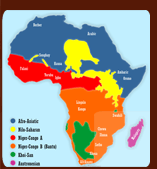
Language Divide
The Sahara is a broad desert belt, which encompasses countries like Mali, Niger, Chad, Sudan, and Mauritania, and hence are neither “sub” nor “North Africa.” In addition, many African communities historically have traveled freely across this European barrier set for Africans. Moreover, millions of indigenous Africans are ethnic natives in Morocco, Libya, Algeria, and Egypt, so even ethnically North Africa is not a non-African territory, and testimony to this is the rock art found in this region showing native Africans hunting there for 10,000 years ago.
The Nile Valley ca. 5000-4500 BCE, where they intermingled with indigenous hunter-fisher-gatherer people already there (Hassan 1989; Wetterstorm 1993). Climatic cycles acted as a pump, alternately attracting African peoples onto the Sahara, then expelling them as the aridity returned (Keita 1990).
The maps below indicate that no definition actually fits a Sub-Saharan model of Africa.
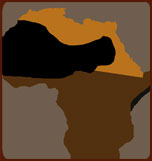 |
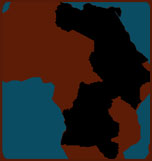 |
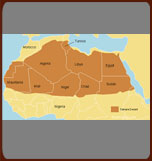 |
| Ethnically shared | Economic communities | Countries in both N&S |
DIFFERENCE – NORTH AND SOUTH
What happens when a language or a culture bumps into sand? What happens when a religion hits a desert belt, or a caravan of salt meets a sand dune? Still, there is no denying that differences do not exist, especially after the moment of colonial conquest. One point is even more sharp differences exist in contrasting Ethiopia with Tanzania or South Africa. If difference is the principled motive, then Ethiopia has to be removed from this sub-box. Sub-Africa is an over-generalization that omits much of the dynamic historical relationship between Africa and the world. Despite the generalization, Ethiopia has always had contact with North Africa and Arabia, they do not have to go via the Sahara for this contact with Arabia as it is only 22km away. Considering much of the seafaring history of the Arab world, the Swahili coast has always been a breeze. The Phoenicians traded with West Africa, but the notion of a Sub-Africa has this habit of explaining away much of the history of Africa. North Africa as a region did have more contact, especially with the Roman conquest that would have made for radical difference in development compared to its Southern neighbors. And the most contrasting difference from that contact would be the European and Arab genes left by these conquests. However, no degree of Whites in South Africa alters the African reality of that region. And so to the Arabization of North Africa, while a serious consideration for unification, should not be given undue weight in the study of the African reality.
HISTORICAL ARGUMENT
Mansa Musa famous Hajj traveled through North Africa in the 13th century so why assume Africans would be confined to this designation called sub-Saharan Africa? There is no ancient reference to a sub-Sahara Africa as distinctive entity from the North. To discuss the history of sub-Saharan Africa is projecting history in reverse by setting up borders that were no part of the African historical reality. Diop held that despite the Sahara, the genetic, physical and cultural elements of indigenous African peoples were both in place and always flowed in and out of Egypt, noting transmission routes via Nubia and the Sudan, and the earlier fertility of the Sahara. Given the constant movement of people over time, the fluctuations of climate over time (the Sahara was once fertile), and the substantial so-called representation of “sub Saharan” traits in the Nile Valley among people like the Badari. The entire region shows a basic unity based on both the Nile and Sahara, and cannot be arbitrarily diced up into per-assigned racial zones.
Sub-Saharan Africa sets-up the premises for the confiscation of any “civilization” which happen to occur in African territory. These malicious definitions have been inherited by the victims of European imperialism and normalize into African language and reality. Sub-Saharan Africa is a racist byword for “primitive,” a place, which has escaped advancement. Hence, we see statements like “no written languages exist in Sub-Saharan Africa.” “Ancient Egypt was not a Sub-Saharan African civilization.” Sub-Sahara serves as an exclusion, which moves, jumps and slides around to suit negative generalization and tired canard Europeans hold of Africa .
POLITICAL ARGUMENT
Politically Afro-Arabian leaders including Kwame Nkrumah, the founder president of Ghana; Gamal Abdel Nasser, and Sekou Toure, the founding father of post-colonial Guinea (Conakry) have refused to recognize the Sahara Desert as a divide, and insisted on visualizing it as a historic bridge.
Recent work in the field of Saharan studies and archaeology are beginning to question this paradigm, particularly with respect to historicizing the region. Prof. Ghislaine Lydon of UCLA argues that such distinctions are superficial and have been overplayed, stating that “very few scholars have ventured into the Sahara despite the overwhelming historical evidence pointing to the interactions, interdependencies and shared histories of neighboring African countries to the south”. Also Okoth, P Godfrey, Department of History University of California, states Sub-Saharan Africa is symptomatic of the racist attitudes towards the former colonies. European travelers and geographers created the concept of “two Africa’s,” which was adopted wholesome by racist scholars in Euro-America. “The idea of “Sub-Saharan Africa,” is, therefore, ‘a myth or misleading. It cannot be accepted as it tantamount to the balkanization of Africa, thereby denying Africa its rightful role in contributing to world civilization. There is only one Africa; hence the need to decolonize such racist and derogatory terms.” Sub-Saharan Africa sets-up the premise for the confiscation of any “civilization” which happened to occur in African territory.
ECONOMIC ARGUMENT
In Africa the regional economic blocs do not fall into the pattern of North and Southern Africa. COMESA is inclusive of Egypt, Sudan and even Angola. There is CEN-SAD. Thus the notion of a sub- Africa is invalid from an economical standpoint.
LINGUISTIC ARGUMENT
Language research suggests that this Saharan-Nilotic population became speakers of the Afro-Asiatic languages. Proto-Semitic and Semitic languages were spoken by Saharan people who crossed the Red Sea into Arabia and became ancestors of the Semitic speakers there, possibly around 7000 BC. Adding to this is the fact that the largest volume of semitic distinct language groups are to be found in Africa. As well as the largest language pool of Afro-Asiatic languages (Hausa, Amharic, Somali, Afar, Nubian, etc).
Africa cannot be banded linguistically into a category called Sub-Saharan Africa; as Hausa and Moroccan languages belong to the African-Asiatic linguistic family. Africa cannot be banded musically into a category called Sub-Saharan Africa; As Mali and North African music share many similarities. Nor can Africa be ethnically banned into a category called sub-Saharan Africa; the Tuareg are ethnically equally part of Niger as well as Algeria. And then there is the seemingly obvious issue of the African native in these “Arab North African” lands. It is the absolutely denial that could call a blue sky red that is so dominate that the woods obstruct our view of the trees.
Millions of Africans live in Morocco and Algeria, they are not recent migrants, or illegal immigrants they are native people of this land, and they are actually the original people of these lands. History is clear that those “lighter-skinned” people are settlers that came with the Romans and the Greeks. Mixing has produced the people we see on television representing North Africa. Also in the 7th century, there was the expansion of the Arab forces into the region causing much Arab-Berber mixing.
Today these people are classified as Arab but some of them object to this classification calling themselves Berber. And clearly, Africa cannot be banded into this division based on religion. Islam is more prolific in so-called Sub-Saharan Africa than in all of North Africa, and North African Arabs share the African traditional Islam. All of these points compound the fact that the so-called Sub-Saharan division imagined by Africa’s conquers is nothing less than absurd and utterly redundant; employed solely for the racist reduction of African historical greatness.
Europeans place an emphasis on written script, and subsequent definitions of “advance” and “primitive” are rooted in this pre-concept. It can be said however that most of the world has, historically an oral tradition. However, both formulas for preserving history can be found in Africa : oral and written. However, attempts to exclude Africa from civilization have hit upon an obstacle when the Ge’ez script exists in Ethiopia . To solve this apparent contradiction the argument moves to, “it was introduced from another people,” and the new claim “they were a half-Arab people.” At no point in time can Africans be allowed to be seen to have fostered anything, which Europe labels as artifacts of civilization. So either the invisible borders comes into play and civilizations are assigned to North Africa (“non-Black”) or gifts given to Africans from external non-African sources via miscegenation and conquest.
It is said that natural barriers justify the separation of North and Southern Africa, but the Sahara is only one such barrier in Africa. Ethiopia is more “cut off” from the rest of Africa due to its mountain ranges. There are barriers due to the impassible forest of central Africa. There are also the great Southern desert belts; interestingly enough Africans have been occupying these deserts from the beginning of human history. There is no climate change when we enter Libya, there is no religious change, and we can argue there is no profound cultural changes that wouldn’t be witnessed moving from Ethiopia to Southern Sudan. Arabic is spoken in Djibouti just as in Sudan; all of these are South of the make-believe line. Somalia and Djibouti are part of the same political Islamic alignment (Arab League) just like many so-called Arab countries. Thus the legitimacy of Sub-Saharan Africa seems to be rooted in some more mischievous foundation.
Viewing culture from these limiting vantages-points poisons the flexibility and deeper appreciation of subtle complexities shared by these unique cultures. In a nutshell it is more obstructive, outside of science and rooted in extreme racist politics. There is more similarity between Mali culture and the culture of the nomadic Berber people than Bantu groups in the Congo . Amhara culture is radically different from say Ghana, and it can be argued to have a deeper relationship with Yemen (which it annexed in antiquity).
So a black and white view of African culture only serves racist generalizations. Historians would like to point to the unilateral influence on African culture by non-African people, never is Africa seen to be the givers of cultural influence outside of its locality. This was extended to the extreme to say Nubians offered nothing to a supposed Caucasoid Egypt. This impossible assertion means that for thousands of years there was only a unilateral cultural and technological exchange. No culture in history shows a unilateral exchange, not even the “Great British Empire,” which dietary culture has been completely altered in a mere 20 years by Asian and Caribbean immigration. There is also the notion of “other” suggested in Ancient Egyptian writings, which is now being used to suggest they were of a different race to the nubians. Lopsided scholarship will always try to work outside of established human behavior. When Ethiopian art depicts the people of Southern Sudan there is an artistic difference between how Ethiopians paint themselves and how they paint “other” Africans: This doesn’t mean Ethiopians are not African( see above fig.) as Ghanaians do the same thing when denoting images of “the other”. Ethnic differences do not mean racial differences.
Normative: Homophobia and the Politics
Normatively is the usage of language to suit one’s rhetoric to the widest possible audience, without losing relevant information in the process .
In government and business jargon is used to encrypts morally suspect information in order to mitigate reactions to it: for example, the almost benign phrase “collateral damage” to refer to the manslaughter of innocents. Words such as “controversial” insert a air of question around a subject. So it is used strategically to create the “fringe factor” around any position which is unpleasant to the user, for example “Jewish involvement in slavery is ‘controversial.'”
Linguistics today is used as a tool for politically maneuvering. We see words such as the misnomer antisemitic initially used against people who hate Jews now it is applied against people Jews hate. We see words like homophobia, a word that is a neologism created in the American sub-culture in 1969 and has no parallel in any African language or ideology; and hence alien to the African paradigm.
These are political terms used to stall any form of plural disagreement, creating a third rail. Collapsing racism, oppression, civil rights, bias and homophobia is a tactic to give gravity to a neologism.
And this is equally true for “gay rights,” It is a word used and abused but has no clear attachment to any set of true values. Do gay rights mean the right to be gay? And who should grant that right, in most countries no one is stopping what happens in private? Or does it mean the right to have children, a right denied by nature? Human rights already protect all human beings from persecution and abuse. It sets up the perfect straw man argument where any opposition to homosexuality or vague “gay rights” is used to imply an attitude of gross violence and deep hatred. The introduction of two equal terms, homosexual and heterosexual, for sexual preference is to normalize homosexuality as an equal reality. Just like the direction terms ‘left and right’, where ‘left’ or ‘right’ has no real social superiority.
All of this has to be stated to appreciate the power of language and thought and the power to alter human perception and expression. Now oppressing homosexuals is very separate from disagreeing with homosexuality, and oppression and disagreement should never be collapsed. Behavioral scientists William O’Donohue and Christine Caselles concluded that the usage of the term homophobia “as it is usually used, makes an illegitimately pejorative evaluation of certain open and debatable value positions. ” The term, like antisemitic, is used as an ad hominem argument against those who advocate values or positions of which the user does not approve. As far as homophobia goes the National Association for Research & Therapy of Homosexuality, states, “Technically, however, the term actually denotes a person who has a phobia — or irrational fear — of homosexuality. Principled disagreement, therefore, cannot be labeled homophobia.”
Feminism and Women’s Rights
What were African women fighting for before the 1950’s, before Europeans coined a term to articulate their specific Eurocentric struggle within the cultural borders of European social-cultural milieu? What were women in Angola and Ethiopia and South Africa doing in the 15th century? What about in Ancient Egypt? To assume, by emotional attachment to the colonizers’ language, that feminism and woman’s justice is the same is to assume that Jewish self-determination equals Zionism. We need to deconstruct feminism from its global linguistic imposition and evaluate its paradigms, contrasting them against communal cultures’ quest for gender harmony and justice.
In the African paradigm (sometimes mistakenly called African feminism) we see how male inclusion is central, how biological determination is factored in, and how spiritual components merge together. Its ethical root is on concepts such as Maat, not individualism.
‘Feminists’ are confusing nudity with liberation–Naomi Schaefer Rile
 The irony of “Feminism” is for all these women who go nude to liberate their bodies the only liberation they really doing is for male lust. Odd kind of liberation when it feeds the very “Male” they trying to distance themselves from. When women decide to remove their shirts, the people who enjoy it most are men. All that lesbian porn is for the male fantasy– nothing to do with gay progress. It is like women who sleep around to be just like men, well good for the men who like cheap women. It does nothing for the dignity of the woman. And what does it say about a woman whose only “empowered” expression is to show off their body parts for attention? A little tacky base, and small-minded.
The irony of “Feminism” is for all these women who go nude to liberate their bodies the only liberation they really doing is for male lust. Odd kind of liberation when it feeds the very “Male” they trying to distance themselves from. When women decide to remove their shirts, the people who enjoy it most are men. All that lesbian porn is for the male fantasy– nothing to do with gay progress. It is like women who sleep around to be just like men, well good for the men who like cheap women. It does nothing for the dignity of the woman. And what does it say about a woman whose only “empowered” expression is to show off their body parts for attention? A little tacky base, and small-minded.
Feminism rotates in the west and is exported to infect, and attach themselves to the broader Woman’s struggle for justice and equality in a male-dominated world. However, as a paradigm is diabolically anti-African anti-human neologism emerging out of the Eurocentric reactionary women’s movement in the 50’s. To collapse feminism and women’s rights is a fundamental linguistic flaw as the two concepts articulate completely different social realities. It is therefore inadequate to use the term feminism and apply this loaded word to the gender issues of Africa. The one commonality in all African cultures is the de-emphasis on individuality and the emphasis on community, the priority of family and creating new life. The feminist is in agreement with everything that breaks the family unit and inhibits procreation. Therefore, the African woman should never seek to locate her liberation within the Eurocentric boundaries of feminism. Within the broader African philosophy, the higher focus is balanced over “tick for tack” equality. The feminist equality implies “what men can do; women can do to” as distinct from the African question of “right and wrong.” “ownership of their sexuality, to flaunt immorality. “This shows the flawed paradigm which is found in many aspects of Eurocentrism, where objectives are disconnected from spiritual and biological harmony.
The forms of African women’s rights emerging in various parts of the continent do not grow out of individualism within the context of industrial societies, as did Western feminism. In the West, economic and social trends historically pushed women into more active roles in the economy, and Western feminism has focused on women’s struggle for control over reproduction and sexuality. However, African women have had a different experience. African debates do not focus on theoretical questions, the female body, or sexual identity. African feminism is distinctly heterosexual, supportive of motherhood, and focused on issues of “bread, butter, culture, and power.”[2]
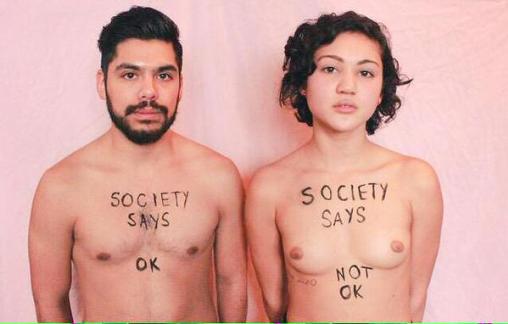 Women’s rights respond to the injustice against women but seek solutions within the cultural/biological context, thus it does not ignore or try to deny the biological design of women and men. Certain terms like “Equal rights” have floated around in popular culture for so long that they evade interrogation. Men and women share many roles but some roles have different gender priorities, some are exclusive to women (childbirth for example.) So if men do not give birth how can the “rights of the women” equally apply to men. Men have to go to war by default, women do not. And while women should have equal access to education, but not to war, not being held responsible for direct conflict. Because the woman gives birth to a nation and such a key to continuing civilization has no place being exposed to the ugliest side of human conflict. An African man does not need his African woman, mother, sister, wife coming home in a body bag in pieces. In the Islamic tradition women, the elderly and children cannot be targeted as a matter of human ethics. An in ancient African societies we see women traditionally not being engaged in direct conflict, especially when able-bodied men are available. While we can agree on commonalities in the struggle for empowering of women we have to also realize in a diverse ethnic-cultural world not every item relevant to women in the west can be transplanted into Africa, Asia or the Middle East.
Women’s rights respond to the injustice against women but seek solutions within the cultural/biological context, thus it does not ignore or try to deny the biological design of women and men. Certain terms like “Equal rights” have floated around in popular culture for so long that they evade interrogation. Men and women share many roles but some roles have different gender priorities, some are exclusive to women (childbirth for example.) So if men do not give birth how can the “rights of the women” equally apply to men. Men have to go to war by default, women do not. And while women should have equal access to education, but not to war, not being held responsible for direct conflict. Because the woman gives birth to a nation and such a key to continuing civilization has no place being exposed to the ugliest side of human conflict. An African man does not need his African woman, mother, sister, wife coming home in a body bag in pieces. In the Islamic tradition women, the elderly and children cannot be targeted as a matter of human ethics. An in ancient African societies we see women traditionally not being engaged in direct conflict, especially when able-bodied men are available. While we can agree on commonalities in the struggle for empowering of women we have to also realize in a diverse ethnic-cultural world not every item relevant to women in the west can be transplanted into Africa, Asia or the Middle East.
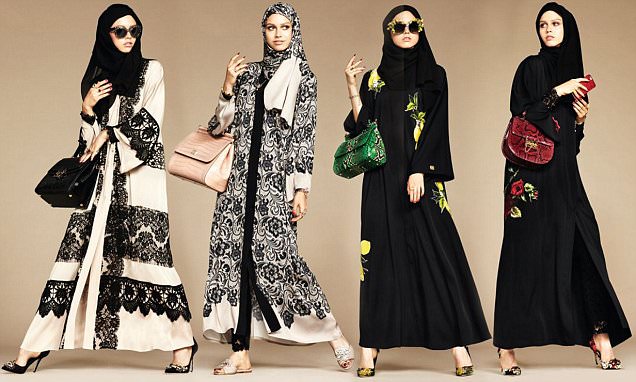
Are these women not dignified and empowered?
A central theme in Africa’s idealism is the quest for harmony and justice. Justice trumps equality every time. And we need clarity on these issues to avoid liberal pitfalls. Both males and females live inside communities, not individual cells, and communities build nations-not individuals. The female energy creates a different world to the world men create. All of this violence we see is partly because of a gender imbalance (Coni and Ms.. Clinton you are excused from this example). There is a myth going around that women’s rights /justice is a woman only affair. No that is feminism. Women have agency, but it is a man’s problem as well, especially men are 1 out of 2 of the agents of female oppression. <See Feminism article>
CONTROVERSIAL | RELIABLE | CONSPIRACY | ALLEGED
Conspiracy theory is the highest level of reject of an argument without actually having to deal with the merits of the argument, it is an almost flawless tactic for curbing institutional analysis. (Chomsky)
The word controversial is often applied to any African opinion which is not supported by mainstream academia. The African origins of Ancient Egypt is “controversial” to suggest it is outside of established opinion and therefore untrustworthy. You can throw entire African studies on linguistics, history, slavery, down the toilet by liberally applying “controversial” to all and every text. However, despite very few people actually believing in evolution of monkey to man, it is rarely considered a theory nor ever referred to as controversial. Two Europeans with a opinion is established and solid academic work while one hundred African opinions is cute and controversial. Barely entertained to satisfy affirmative action quotas.
In law, politics, and academia words such as “Alleged” play a sophist role in whitewashing claims of oppression. it almost makes racism look like it subjectively lives inside of the minds of the victims. “It is alleged that African Americans suffer from institutional racism” — creates reasonable doubt to the legitimacy of the claim: mitigatory language in, which to continue to deny oppression.
Ethnicity and Tribe
Africa is the second largest continent, divided into a collection of post-colonial “sovereign” nations populated with a variety of ethnic groups, not tribes. Fulani are more than 15 million strong that is not a tribe–that is a nation. The label tribe only seems to apply to non-European ethnic groups. And comes with a notion of backwardness and non-modern values.
Also ethnic when used as “exotic” is also incorrect because it normalizes European culture, placing all other cultures on the outside of this “standard human culture.” In this instances, ethnic, exist as some “exotic” trite sub-culture, for and only the entertainment destination of European cultural tourist.
And in more subtle ways language affects perception. The term ethnic is used by Africans inside of Africa to describe their nature features and cultures. How can an African be “ethnic” in a continent where Africaness is the norm? We also see people saying “cultural dress” ; the mental process is creating a “normal dress” and then a “cultural dress” and while it is 100% accurate, we need to examine how European culture is so normalized it forces everyone else’s culture to be “Culture.” (See Culture)
Nominal Faith and Syncretism
A re-emerging Eurocentric term, which is awkwardly re-asserted in history is that of the nominal Muslim in African history. Unless we are saying Islam itself is an absolute value that has degrees of purity set against some Saudi Arabian standard then it is impossible to discuss the spiritual purity of Islam as expressed by one culture against another. Because what does the term really mean? That someone prays 2 times a day and not 5? Or that they do not pray at all? The criteria of “being Muslim” are not some absolute set of values set by Europeans and Afro-orientalist. The person the West calls “Muslim” might be an apostate or a Qadianis. [4]
People of Islamic heritage are generally called Muslims. Clearly, some societies are more adherences to the doctrine of the faith; say Nigerian Muslims versus Islam in Turkey. Some claim African Muslims blended ancient African traditions into the “pure” Islamic they encountered coming from Arabia. Every single form of Traditional Islam absorbs aspects of its culture where ever it goes. So In Bangladesh, we see the Barelwi flavor of Islam, bringing in aspects that are part of pre-Islamic Bengali spirituality, and again in North Africa and Saudi Arabia. The customs and cultures of Arabia inevitably get blended in with the so-called mainstream Islamic theology. So this pattern is not only true for Africa, nor is it unique to the Islamic faith (see religions of Brazil and Hati). It is not the place of history to hold up some litmus test to religions and weigh them against some imaginary standard of purity. Because it supports the idea that everything the Saudi Arabian brand of Islam does is 100% and anything which varies from this is impure. Sonni Ali Ber may have been less religious in zeal than say Uthman Dan Fodio but both of them were members of the Islamic faith, and thus historically Islamic.
Syncretism is a term used to explain the mixing of elements of different religious beliefs. While it is an aspect of Africa it is not unique, not special and certainly not peculiar. It is a worldwide reality from India, to China to Brazil and even in North Africa and Arabia. And technically speaking It is also true for much of Western Christianity, which is plagued with so-called pagan rituals (Xmas, etc). But these phenomena when occurring in European religion are forms of orthodoxies. There is undue weight placed by academics and anthropologists on this phenomenon, and part of this has to do with issues in studying Africa and understanding African agency. Therefore what is Islam in Senegal is African Islam, not Islam with pagan habits. There must be a respect for African agency to create its own Islam and respect for the native faiths to naturally be part of the shaping of the Africanization of Islam. The final product is still Islamic or Christian because there is no such thing as a pure religion, or there is no standard of Islam to measure all varients against –as anthropologists are trying to do.
Syncretism according to some definitions is only valid if the elements being mixed are in contradiction or seriously compromise the integrity of the faith. In this instance, the word in Arabic would be Bidah (innovation). For example, if a Muslim worships Allah but also the tree God of Lake Hora in Debre Zerit Ethiopia ( Irreechaa holiday ). Attending the festival is no different to a European Christian celebrating Guy Fawkes.
European anthropologists also have this habit of lumping and misunderstanding African customs. Because unlike the obsession with terms like “religion”, “culture”, and “nation,” Africans have a more fluid non-dichotomized worldview. Taking elements of culture into Christianity is not syncretism. The misidentification of every ritual in Africa as “religious” is due to poor understanding of the distinctions between religion and culture.
Africa is seen to have fostered no orthodoxies of its own. Therefore any variation in Christianity, Judaism or Islam is seen as semi-orthodox. For example, as opposed to treating African Judaism as a type of Judaism Israeli religious authorities demonized and tried to discount Ethiopian Jewish traditions. And in doing so try to reform them to match their version of Orthodox European Judaism. So for Ethiopians to be considered “Jewish” they had to become “European Jews” and lose millennia of unique Ethiopian Orthodox Judaism. The same is true for Islam. So as oppose accept the unique flavor of African Islam as 100% as Islamic as what is practiced in Saudi Arabia, it is demonized as flavored with “paganism.” Eurocentric anthropologists have always struggled to give validity to anything Africanized.
Ethiopian Christians find it taboo to mix with the Oromo rituals, Muslims in Sudan and Nigeria are very hard-line about what they call Bidah(innovation with other religious ideas). And it was Uthman Dan Fodio who waged a jihad against what he saw was contamination of Islam. The same thing happened in Saudi Arabia with the Wahabi movement.
In understanding Africa, we must understand the dynamics of religion in living and historical Africa. Native African faiths are met with challenges for their existence but to suggest it is unique to Africa invokes a kind of distortion of reality. It takes away from the validity of native systems as being influential in shaping African orthodoxies and it also tries to “tribalize” African indigenous beliefs. And since these beliefs are seen to be backward or primitive it is used to suggest a “tribalness” to any influence these faiths have.
Primitive
This is one word that is so charged that it is hard to use it without falling into a bee’s nest. But it is an important word and I struggle to not use it when describing things. However, It is so loaded that you cannot use it without being accused of being Eurocentric. But be that as it may, there are primitive cultures and religions. Sometimes I wonder what we should call illiterate societies. And I recall us (as a group) discussing this once. I think I was against the word b/c it seems to set a standard based upon the “technology” (which writing is). This can be unfair because most of the world was illiterate for most of history.
But it is problematic also because we use words and terminologies to comprehend our world. So language is functional, and part of its functionality is in being succinct. Now how do you discuss two societies, where one is complex with complex economics vs. one that simple; stone age and primitive. How do we serve truth and PC? Because there are no versions or POV or worldviews that will explain Korea vs African technology where Korea does not win! And this liberal way of approaching reality is nothing short of obfuscating reality and offering fantasy in its stead. And we must avoid altering the relevance of these realities because then Africa would be comfortable and stay behind. Like ” what is wrong with a mud house?” (see the floods that hit Durban in 2022) and “what is wrong with a society with no banking?”(no trade) As stated before sure there is nothing “wrong” with being illiterate and techno-primitive until those people with those things arrive on your shores and make you slaves! That is the foremost reality we need to deal with development. And within that context primitive vs developed is very real, despite our liberal pretensions. There is no primitive culture that will stand a chance against a more sophisticated culture in the global market. And we need to discuss things in their place while being cognizant of the dangers of inheriting biased worldviews namely Eurocentrism.
Slave vs. enslaved
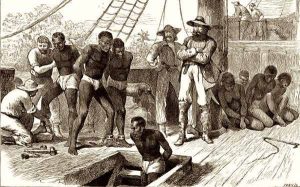
Enslaved Africans Transported
The notion that free Africans were slaves degrades the reality on-the-ground in Africa and makes the assumption that Africans in Africa were born into that condition; that their reality was always slavery. However, the term enslaved offers a more accurate reality, for it describes a condition placed upon Africans by their enslavers. Hence, captive Africans came across the Atlantic and were subsequently enslaved. Never were they slaves because this is not the natural condition of African people. Writers of history who are ignorant of this reality set-up a relationship between black and African, African and Slave and in this cocktail, Africa and all its contents becomes a completely negative entity which offers our imagination nothing more than images of Slaves, poverty and backwardness.
African Holocaust (Maafa)
Maafa is a Kiswahili term for “Disaster/Holocaust” or “Terrible Occurrence.” Maafa or Holocaust is more inclusive and hence better describes the 500 hundred years of suffering of people of African descent through Slavery, Imperialism, Colonialism, Oppression, Invasions, and Exploitation. The Maafa is thus a area of study that looks at the collective experience of the cultural and physical Holocaust and the legacies of that Holocaust (holocaust). Thus the repairing of the Maafa by definition extends to encompass all areas of African life; culture, linguistics, religion, economics as all of these areas was impressed upon by the Maafa or African Holocaust. Holocaust is an English word (taken from Greek) it is not the property of anyone group, in the same way that pain, slavery, genocide and suffering is not exclusive to one group of people.
Tradition and Indigenous
Often, and mistakenly so, the terms traditional (classical) and indigenous are merged into one understanding as it relates to African culture and history. It is a fundamental mistake as it warps and limits a true understanding of Africa and its many complex international relationships thus restricting and confining African history and culture.
Traditional:
Traditions carry the notion of histories and legitimacy (Olupono). But it should be used with care because “traditional” human sacrifice was a reality of some cultures. As these words relate to religion, Islam becomes a traditional African religion, which exists in classical and contemporary Africa. It is often said by scholars and historians that Islam has been in Africa longer than it has been in any other part of the Middle East (bar Mecca in Saudi Arabia). Judaism and Abyssinian Christianity have also been in Africa for such a long period that in certain places (and this is key) there are traditional African religions. This does not mean that all forms of Islam, Christianity, and Judaism are classical or traditional. And hence terms like traditional African Islam are fundamental in defining the African reality in classical African and contemporary history: Just as Christianity traditional to Rome is starkly distinctive from Christianity local to Ethiopia. Fundamental ingredients embody the essences of these religions in Africa, which makes them traditional, and this must be recognized in any constructive appreciation of African culture and history.
Indigenous
Indigenous can only be used to describe something fostered exclusively by a particular community. Because something is indigenous to Africa does not make it traditional or for that matter classical. Indigenous thus does not by default speak to a people’s legacy only to the fostering of that item irrespective of time.
Slave, vassalship and bond servants
The system of imprisonment found in Africa prior to European enslavement was not slavery, but vassalship or indentured servitude. Too often chattel slavery is married to the systems found in Africa , which then sets-up all kinds of nasty arguments rooted in mitigating the African Holocaust, alleviating European’s responsibility, and putting Africans as the sole bearers of the sin.
If forms of Slavery are diverse, then one word for a complex multifaceted system is inadequate. If the Inuit people have more than 20, words for snow to articulate its variety, why then must we limit ourselves to one term in relation to slavery? Clearly Arab enslavement of Africans contrasted the European enslavement of Africans, and the non-free class within the Muslim Songhai Empire was different from captivity among the Oba or the Asante . Fundamentally, academia must advance and embrace new terminologies for these different realities. But when a dis-empowered people are forced to use the tools of their oppressors it is little wonder more voices don’t see the anti-scholarship principle found in the abhorrent generalization of enslavement; a system so diverse that in one system you could be a king while in another you were little more than a domestic animal.
African Renaissance and Pre-Colonial/Post-Colonial
Pre-Colonial Africa: Since when does 7000 Years of recorded history orbit around the century of occupation of Europeans in Africa? Since when does the entire discussion of African history spin around 80 years of colonial rule? Pre-Colonial seems to take the place of saying “Africa pre-civilization.” These terms like “Discovered by so-and so European” are a blatant rejection of African agency. Also Pre-Colonial Africa denies the fact that the history of Ethiopia and Liberia are not contained in any Pre or Post colonial African discourse. So the entire subject is another example of undue weight based on European worldwide: Africa relative to their contact with it. And why should Africans themselves as a proud people define their historical state relative to European conquest? Yes it was a journey interrupted but why hang all events prior to that event on it? Does the entire history of Ancient Egypt become “Pre-Colonial”? By adding a pre and post European encounter into every aspect of African history we make Europeans the masters of the universe and our world view.
Pre-Colonial Black Africa is a paradox, as they were no “Blacks” in any pre-Colonial Africa. The reality of a “Black people” is largely a construction of the “post-colonial world.” We fully understand why African scholars of the past used the term. But we are in a new age of discovery and advancing their good work.
African Renaissance is a anachronism, 1st because the Renaissance is a specific period (14th-17th century) in European history brought about by the cultural Islamic impact on Europe. So Europe had its “rebirth” in this period so to name something a. Africa had its “golden age” thousands of years ago in the Nile Valley. Renaissance almost says Africa is now experiencing these same revolution centuries after the rest of the world. The phrase was promoted by then President Thabo Mbeki, a typically western educated and influenced African leader. And when your entire center of knowledge is European it forces the mind in an attempt to feel valid to assert the African reality-based and within the cultural context of Europe. So the most profound problem with the specific usage of the Renaissance is shows the framework of Africa as nothing more than a cultural orphan of Europe. Africa must exist and define itself in its own terms of reference and not be boxed into European concepts and constructs. Europe is not the gravity in the African historical reality so to articulate African history based upon Europe’s recent presence in the 45,000 years of recorded African human history is ridiculous.
3rd World
Third World If there is a third world then there must be a third world people and a third world system of management and governance. Third world is equivalent to second-class citizen a person of an inferior standing in the community. The alternative concept of developing worlds is better but still articulates a need for non-European nations to “catch up” with some standards exemplified by the European world. And all those who fall below this benchmark are third-world or developing. This is why GDP and development is measured from urbanization giving natural inferiority to agriculture-based industries.
Civilized World | Modernity (corrected)
Political correctness is what stymies the debate and on the flip side, the discussion has been used historically to do some cruel things. But it is a device for discussing human development and people need the maturity to understand it in that critical context and not see it as it is often used— as a value judgment.
:max_bytes(150000):strip_icc()/BirthOfVenus-58af35753df78cdcd830ae1b.jpg) Africans have a great issue with re-appropriating words Eurocentrism uses against us and trying to fit in. So we see Afrocentricity, of all ideologies, trying to grab renaissance to describe advancement in Africa. But at some junction, if words have no solid meaning (even when they work against us) we have no bases for discussing anything. A literate society is very different in its potential for growth from a pre-literate society. Reinventing the word for PC purposes does not clarify any discussion.
Africans have a great issue with re-appropriating words Eurocentrism uses against us and trying to fit in. So we see Afrocentricity, of all ideologies, trying to grab renaissance to describe advancement in Africa. But at some junction, if words have no solid meaning (even when they work against us) we have no bases for discussing anything. A literate society is very different in its potential for growth from a pre-literate society. Reinventing the word for PC purposes does not clarify any discussion.
All civilizations have certain characteristics. These include (but are not limited to) : large population centers; monumental architecture and unique art styles; shared communication strategies; systems for administering territories; a complex division of labor; and the division of people into social and economic classes. This comes from National Geographic and it is a hotly debated topic. But no degree of heat on this topic has allowed it to expand so much that the lifestyle of the Khoisan or the Mashco-Piro tribe are ever going to be included.
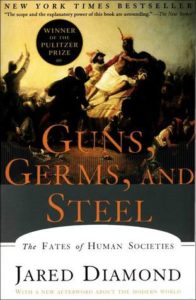 The template for this discussion is Jared Diamond’s work Guns, Germ, Steel.(agreeing with his work or disagreeing with his work) Again, this is not a history of Europe but a lens through which Africans look at European civilizations from their start to what they would eventually become and why the boast of Europe is different from the boast of Africans. This is important really because European civilization exploited Africa because as Karenga said “they had the ability to do, but not the moral restraint not to.” So Europe ruled the world through its technological advancements. What are the factors that allowed these advancements and what created this Pan-European identity that we see today? And where do we fit in since we are forever made to feel inferior when we look at their wonderful structures (buildings, systems of banking, government, religion, music, on and on)? It is possible that Africa has not beaten Europe in any worthy category on Earth, not even in music. And we need to explore the different development trajectories of Africa and Europe. And critique the paradigms we use to do so. It is a complex topic and nothing you read is written as an apologist.
The template for this discussion is Jared Diamond’s work Guns, Germ, Steel.(agreeing with his work or disagreeing with his work) Again, this is not a history of Europe but a lens through which Africans look at European civilizations from their start to what they would eventually become and why the boast of Europe is different from the boast of Africans. This is important really because European civilization exploited Africa because as Karenga said “they had the ability to do, but not the moral restraint not to.” So Europe ruled the world through its technological advancements. What are the factors that allowed these advancements and what created this Pan-European identity that we see today? And where do we fit in since we are forever made to feel inferior when we look at their wonderful structures (buildings, systems of banking, government, religion, music, on and on)? It is possible that Africa has not beaten Europe in any worthy category on Earth, not even in music. And we need to explore the different development trajectories of Africa and Europe. And critique the paradigms we use to do so. It is a complex topic and nothing you read is written as an apologist.
Europeans have been firm in holding up themselves as creators of civilization: That only when people left Africa did civilization come into existence. This is done by doing exactly what the Romans did before, by defining civilization to include their traits, and habits, and defining everyone else’s on the outside of those virtues: the Greeks did it with the Persians despite being at a lower level of social-technological development. Hence despite all the sophistication of some “barbarian” tribes, they were still barbaric in Romes’s eyes. Civilization defined by the conquers is suspect. US foreign policy, like Roman foreign policy, like all foreign policies in antiquity, uses these terms to separate them from the other. It has no other serious purpose but in foreign policy.
But since we speak English there is sometimes no point chasing and re-defining clear terms. You cannot call a hunter-gather society a democracy– because that is not what the word means. We might “like” the word democracy but it does have a meaning which does not apply to countries ruled by kings (Kingdoms). So words, when we use them, need to respect their meaning. Civilization is one of these problematic words because it does mean advanced societies with social stratification and complex societies ( specialization of labor, culturally ingrained ideologies, monumental architecture, taxation, advanced forms of communication, and systems of institutionalization). So no, not all African societies conform to this meaning of the word. The Khoisan do not meet this criterion. And as opposed to changing the English language we need to just simply add value to the qualities of a hunter-gather society that are positive. For one they only took what they needed from the natural world, something we seriously need to return to if our planet is to survive with us on it.
Civilized is how we behave towards each other, how we work together, and how we disagree and handle those disagreements. We know not to turn a disagreement into violence. But this is clearly not the case with how so-called civilizations conduct their business, more often than not, the reason they are big civilizations with tall steel buildings is that they have not been civilized.
On another paradigm, civilized (which comes from civilization but can also mean politeness) cannot be defined by the height of tall buildings, but only by the humanity between human beings. The word Civilized is often muddied with modernity. Modernity is a technological state not a status on humanity. Technological accomplishment has no connection to social development which constitutes civilized behavior. The Western world has redefined civilization to continuously point away from glorifying Africa in any respect. Even Africans have borrowed these mangled terms to define themselves. The civil conduct between people in the poorest regions of Ethiopia are far more civilized than the heartless inner cities of Europe and America. The way in which neighbors care and interact with each other, looking after each other’s children is African humanity. A family’s responsibility to collectively share economic burdens is humanity. Modernity only describes the technologies which one uses. And often because of the glaring lights of the Western cities of the dammed, Africans trade modernity for humanity and think they are making progress.
PRE-HISTORY (2022)
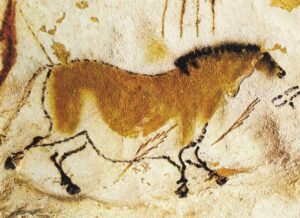 Two words that appear to mean the same thing; “the Past” from “history”. Some people see the past as history, but is it? I am not offering one position or the other but I sometimes think it is something to think about. But you will hear the word Pre-history. Pre means before, history means recorded history aka documented history in short the history after the invention of writing.
Two words that appear to mean the same thing; “the Past” from “history”. Some people see the past as history, but is it? I am not offering one position or the other but I sometimes think it is something to think about. But you will hear the word Pre-history. Pre means before, history means recorded history aka documented history in short the history after the invention of writing.Semitic and Anti-Semitic
Lying is done with words and also with silence –Adrienne Rich
To be Semitic, technically, means to speak a Semitic language and in this regard all of Amhara, Gurage, Tigray (etc), all Arabs and all Hebrew Speakers. This means the largest linguistic group in Africa is a Semitic one. However, if Semitic means “mixed” then the majority of Semitic people are Arabs. European Jews in neither of the above classifications are Semitic because they are racially European, culturally European, and linguistically European. Terms for Jew” in the 1980 Jewish Almanac we read: “Strictly speaking it is incorrect to call an Ancient Israelite a ‘Jew’ or to call a contemporary Jew an Israelite or a Hebrew.” Modern facts show they are genetic Khazars who converted to Judaism.
One cannot be anti-Semitic against non-Semitic European people. Thus anti-Semitic in its true sense means to be anti-Arab, Anti-Ethiopian, anti-Amhara, anti-native Jew, etc. Anti-Semitic is part of a collection of words used globally that are linguistically inaccurate (a misnomer). But because of tradition, these words continue to have narrow definitions. The discussion of what a word represents and what a word is meant to mean is very important, especially when it is used as a third rail.
And maybe in this, we see the persistence of words like Ethiopia and Habesha, although the roots are inaccurate today they are simple words that are somewhat independent of their etymological origin.
Forget the worldwide rampant Islamophobia and demonization of Arabs… Human Rights and Labor, has “institutionalized the fight against global anti-Semitism”, even though the US military and their allies have been destroying countries mostly populated by Muslims for over a decade. Or maybe is it precisely to support the war on Islam and the Arab World – a.k.a. “war on terrorism” – that the “war on global anti-Semitism” is being launched?–Julie Lévesque [3]
The first sign of agency is the inherent power to define ones terms of reference. Specific words exist for racism against Jewish people and US congress monitors global antisemitism (Global Antisemitism Review Act) yet no such policies or terms exist for the greatest victims of racism. The ongoing African Holocaust is denied, ridiculed, mocked, and deemphasized daily without any global sympathy. How is it possible for 60 Million people to have so many terms which articulate their self-interest yet 1 billion Africans seem disabled in this capacity? For 500 years Africans have been on the receiving end of historical racism culminating in the final Great Holocaust of chattel enslavement in the Americas yet nothing exist in any language to speak directly to this ongoing Holocaust.
If you call an African a Nig… it is called racism
If you call an Semitic Arab a Sand.. N… it is called racism
If you call a Latino a Spi… it is called racism
If you call an Chinese a Gou… it is called racism
If you call a Jew a Kyk… it is a special kind of racism called Antisemitism.
Antisemitism flies off the tongue so loosely these days and it is a betrayal of the victims of the Germany Nazi holocaust. Actors, anyone seeking attention talks about being victims of antisemitism. Even Paula Abdul (the Jewish dancer) and Mila Kunis (Black Swan) claim for publicity to being a victim of antisemitism. Yet when Africans play the “race card” they are fashioned as having a “chip on their shoulder”. What is the specific term in the English language for racism which 1 billion plus Africans live in the shadow of every day? Dogs, lynch mobs, hoses, apartheid, slavery, genocide, mustard gas, HIV experiments, Gene warfare (created by Israel and Apartheid South Africa) and yet no word exists to describe the peculiarity of this ongoing and unrelenting African oppression.
The blatant visibility of physically being African means there is virtually no shelter from global racism from China to Chile. Yet nothing exists in any language for this peculiar treatment of Africans and this is testimony to one thing—lack of agency. Where agency is the ability of people to project their experience to the world.
The information is drawn from suicide terrorist groups themselves, from the main organizations that collect such data in target countries, and from news media around the world. More than a “list of lists,” this database probably represents the most comprehensive and reliable survey of suicide terrorist attacks that is now available. The data show that there is little connection between suicide terrorism and Islamic fundamentalism or any one of the world’s religions. In fact, the leading instigators of suicide attacks are the Tamil Tigers in Sri Lanka, a Marxist-Leninist group whose members are from Hindu families but who are adamantly opposed to religion. This group committed 76 of the 315 incidents, more suicide attacks than Hamas. ~ Robert Pape
“I have compiled a database of every suicide bombing and attack around the globe from 1980 through 2003—315 attacks in all.1 It includes every attack in whi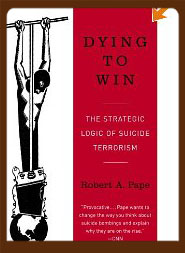 ch at least one terrorist killed himself or herself while attempting to kill others; it excludes attacks authorized by a national government, for example by North Korea against the South. This database is the first complete universe of suicide terrorist attacks worldwide. I have amassed and independently verified all the relevant information that could be found in English and other languages (for example, Arabic, Hebrew, Russian, and Tamil) in print and on-line.
ch at least one terrorist killed himself or herself while attempting to kill others; it excludes attacks authorized by a national government, for example by North Korea against the South. This database is the first complete universe of suicide terrorist attacks worldwide. I have amassed and independently verified all the relevant information that could be found in English and other languages (for example, Arabic, Hebrew, Russian, and Tamil) in print and on-line.
…and the United States has backed a number of ‘terrorist’ organizations in the past (including the Nicaraguan contras and the UNITA guerillas in Angola). American presidents have also welcomed a number of former terrorists to the White House (including PLO chairman Yasser Arafat and Israeli Prime Ministers Menachem Begin and Yitzhak Shamir, who played key roles in the main Zionist terrorist organizations) which merely underscores the fact that terrorism is a tactic and not a unified movement.” — John J. Mearsheimer and Stephen M. Walt, The Israel Lobby and U.S. Foreign Policy. New York: Farrar, Straus and Giroux, 2007. “Terrorism is not an organization or a movement or even an ‘enemy’ that one can declare war on; terrorism is simply the tactic of indiscriminately attacking enemy targets–especially civilians–in order to sow fear, undermine morale, and provoke counterproductive reactions from one’s adversary. It is a tactic that many different groups sometimes employ, usually when they are much weaker than their adversaries and have no good option for fighting against superior military forces. Zionists [e.g., especially the members of Irgun (or ‘Etzel’) and Lehi (or the Stern Gang)] used terrorism when they were trying to drive the British out of Palestine and establish their own State…
“Terrorism is not an organization or a movement or even an ‘enemy’ that one can declare war on; terrorism is simply the tactic of indiscriminately attacking enemy targets–especially civilians–in order to sow fear, undermine morale, and provoke counterproductive reactions from one’s adversary. It is a tactic that many different groups sometimes employ, usually when they are much weaker than their adversaries and have no good option for fighting against superior military forces. Zionists [e.g., especially the members of Irgun (or ‘Etzel’) and Lehi (or the Stern Gang)] used terrorism when they were trying to drive the British out of Palestine and establish their own State…
BLACK ON BLACK VIOLENCE
If the political phrase Black on Black violence it would be fair to say there must be its counter-part White on White violence. Unless we are suggesting that Africans are unique that they are the only race as a minority to experience the phenomenon of internal violence.
REVERSE RACISM
Like its partner in politics—antisemitism—it is the political tool of curbing African dissent to racism. In other words when the African seeks solutions to the prevalent White racism he is accused of “reverse racism”. Again, it is linguistically nonsensical, an oxymoron, reversing racism is actually a good thing. It is devoid of functionality and exclusively political in construction and usage. Its application is void in defining any tangible discourse. How can someone be a reverse racist? It adds power to white ethnocentrism since they perpetuate the power of racism and all we can do is reverse their own medicine on them. So it is Eurocentric. If an African has power and is being “racist” towards Arabs or Whites then he is a racist. So if ANC seek to redress the racist economic policies and are trying to create a level playing field it is not racism, because there is no notion of supremacy but a notion of justice and equality. It is the same as the positive employment of women in fields, which are traditionally male, dominant. It seeks to redress a gender imbalance.
TERRORISM DEFINED
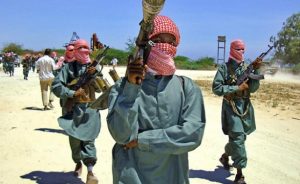
Terrorist?
This word terrorism has a very broad application. But the one common thread is it seems terrorism is always some act that is not in US foreign interest. But according to the above definitions then the entire history of America, UK, France, Germany and Israel [7] would be the biggest terrorist on the planet and their victims are the native peoples of the planet who live in fear and submission. [8] As the popular saying goes:
One man’s terrorist is another man’s freedom fighter–Gerald Seymour
And while most find the act of terrorism morally reprehensible when it targets innocent non-combatants. This is the aspect which becomes reprehensible, the single act of targeting innocent civilians. Apart from this, terrorism is just another type of ugly and heinous warfare, which mankind seems not to be able to evolve out of. But the old canard of the random crazy terrorist is not a serious assessment— just a better way to continuing denying the merit and agent of certain grievances. Especially when those grievances are the results of US foreign policy and admitting that would make America liable. Terrorists, if anything, are not random, cowards, or illogical. A coward is someone who flies a nuclear bomb high in the sky and drops it on women and children at zero risk to himself. A coward gets 7 nations to attack one 3rd world country. A coward hides behind White House walls while sending the poor to Vietnam to die. Terrorist, just like the crying of a baby— creates a desired effect. And from a social perspective, it is always a sign of a society that has failed to represent, or incorporate plurality and marginalize groups. (Robert Pape, Dying to Win (2005))[8] One thing we can agree on, unlike most politicians, is their are no insincere or fickle suicide bombers.
“The term terrorism means premeditated, politically motivated violence perpetrated against non-combatant targets by subnational groups or clandestine agents, usually intended to influence an audience.” – Patterns of Global Terrorism 2003, p. xii, US Department of State
“[T]he unlawful use of force and violence against persons or property to intimidate or coerce a government, the civilian population… in furtherance of political or social objectives.” – Terrorism 2002-2005, p. iv, FBI, US Department of Justice
“The unlawful use of violence or threat of violence to instill fear and coerce governments or societies. Terrorism is often motivated by religious, political, or other ideological beliefs and committed in the pursuit of goals that are usually political.” – Department of Defense Dictionary of Military and Associated Terms, (Amended in 2012), p. 317
Clearly, keywords in these definitions like “ideological beliefs”, “religious”, “subnational”, “violence”, even “societies”, can be amply twisted to include as much as exclude, subject to convenience, what counts as terrorism which, according to India’s The Prevention of Terrorism Act, 2002, includes any “intent to threaten the unity, integrity, security or sovereignty of India or to strike terror in the people”. In mainstream definitions, the term “political” is used to distinguish terrorism from crime by an “abnormal” person – shootings by an individual for “personal” reason. However, defining “political” this way is problematic because in another definition of politics – everything is political or, as the feminist credo held: “the personal is political”~Irfan Ahmad
America is a psychopathic psychofrenic. They go around the world pissing people off and then get teary eyes and confused when the colonized kick back. Like when you see a child pulling at a dogs tail, the dog was cool and ignored it once then twice, but on the 3rd time you know what happens. Cry yes, but most children learn that pulling at dogs tails = you get bitten. America is still trying to figure out why it got bitten. And as oppose to learn, they keep repeating the behavior that keeps the cycle in place. The idea is alter your foreign policy. Alter your attitude to the Zionist state. (Mearsheimer & Walt (2008))
CONCLUSION
We must not walk on the outside of our own history and thus a challenge to systems, which remove us from this noble place within human history need to be critically and objectively re-evaluated. To continuously fight an opponent who makes the weapon we fight them with, means victory will always escape us. This is why no matter how close we come–we lose. Unlike other groups, we fail to institutionalize and control concepts and definitions relevant to our reality. We only need to look at the current anti-Islamic campaign to see the role of language usage in a battle for supremacy and mind control. Today terrorists might as well mean Muslims. They employed a strategy that started by saying Muslim and terrorist, Islam and terrorism. These words always accompanied one another. Once the marriage had been established, either word; may it be Muslim or terrorist conjured up the other, thus Muslim implied terrorist and terrorist implied Muslim.
Until an African lingua franca is established we will always be seeking our reality within the linguistic boxes built for Europeans. This paradox of seeking a new African paradigm within Eurocentric constructions is questionable, but necessary.
The Western controlling powers have the single most powerful weapon at their disposal: mass media, they also have the military, the missionaries and the merchant to secure their worldview (4Ms of European agency). And thus concepts, precepts, ideas and ideologies can be communicated in the blink of an eye. Thus we must too find a way of communicating our new realities to our people and it must start with those in positions of mass interface with the public; writers, musicians, politicians, et al employing these terms. No one should deny the oppressed people of this planet the right to self-determine and use linguistics to navigate and explain their reality. This is a key part in our path to self-determination and must not be under-estimated or over-looked if freedom and destiny are to be ours.
There is no line drawn under words and the future of linguistics in articulating our reality, for our empowerment is a continuous journey. Its ultimate destination is when the African languages are completely used in our communicate. As African people, we must seek to redefine our reality, and part of this redefinition must begin with the terminologies we use to define ourselves and the terminologies others use to define us. The war of words is perhaps the greatest battle field of the 21st century and when we employ and integrate them into our conscious, we ultimately embark on a journey that has only one destination– cultural emancipation.
Footnotes
Invention of the Jewish People – Shlomo Sand Kindle Edition
A Caribbean steel-pan group called the gay crusaders had to change their name after a tour of California. Aparently, they were attracting the wrong clients.
Therefore, idioms are not considered part of the language, but part of the culture. As culture typically is localized, idioms often are useless beyond their local context. But language/expressions/terminologies fly on the wings of agency.
“War of Words” Language, politics and 9/11, 2002, Sandra Silberstein
The Story of the Moors in Spain. Stanley Lane-Poole, Arthur Gilman. “In ancient times, Africans in general were called Ethiopian; in medieval times most Africans were called Moors; in modern times some Africans were called Negroes.” He goes on to state that “In the literature on Africa, Africans are commonly identified in two groups: one progressive and the other backward. The progressive people are called Hamites, Kushites, Moors, etc, and the backward are called Negroes. The word Negro comes from the Latin word Niger, which means black. “
Catherine Lowe Besteman, Unraveling Somalia: Race, Class, and the Legacy of Slavery, (University of Pennsylvania Press: 1999): “While upholding the perception of Somalis as distinct from and superior to the European construct of “black Africans”, both British and Italian colonial administrators placed the Jubba valley population in the latter category”
Words like linguistics, ethnicity, Anthropology, sociology, evolution, archeology, history, indigenous, are all neutral words they might have negative connotations in the sense of how they have been used against a particular group of people. However, they have no inherent agenda. Anthropology simple means “Human discourse” hence the writings of the Ancient Egyptians about the Nubians would be a form of anthropology since we are currently stuck using English it is a term of reference. All knowledge systems have historically been used to oppress people; so we cannot for historical reasons throw every word in the English language in the bin. Knowledge because of its inherent nature has the possibility to enslave or liberate and it is on this bases that it is critical to study terminologies and in the contemporary moment and selectively apply them to a people’s self-determination.
Russian is translated into Russian as rossiyanin (россиянин, plural rossiyane), while the ethnic Russians are referred to as russkiye (sg. русский, russkiy)
It has been suggested, but not verified that : kiswahili: mtu: a person, a human kinyarwanda/kirundi: u-muntu: a person, a human kiswahili: watu: peoples, humans lingala: batu: peoples, humans
3. Tajudeen Abdul Raheem, ed., Pan Africanism: Politics, Economy and Social Change in the Twenty First Century, Pluto Press, London, 1996.
Okoth P Godfrey, Truman Administration and the Decolonization of Sub-Saharan Africa, Journal of Third World Studies. “In reference to Africa, whether advertently or inadvertently, Munene falls in the trap of the so-called concept of “Two Africas.” Munene’s usage of the term, “Sub-Saharan Africa” is symptomatic of the racist attitudes towards the former colonies. European travellers and geographers created the concept of “two Africas,” which was adopted wholesome by racist scholars in Euro-America. It has, however, been established that Africa was not self-isolated by the Sahara. The Sahara came into existence when that part of the world dried up thereby forcing the inhabitants to migrate north and south. Additionally, the practice of Trans-Saharan trade established the pre-Saharan life and activities. The idea of “Sub-Saharan Africa,” is, therefore, ‘a myth or misleading. It cannot be accepted as it tantamount to the balkanization of Africa, thereby denying Africa its rightful role in contributing to world civilization. There is only one Africa; hence the need to decolonize such racist and derogatory terms.
NOTES
What is a derogatory term? With what certainty can we say a word is offensive? Who gets to decide if it is offensive or not? A case study regarding an ethnic classification in Southern Africa highlights this issue: “The Term San is not without problems of its own. Some point to this Nana term’s negative connotations, meaning “worthless” or “no account.” And the term Bushman has its advocates among anthropologists and others. San leaders themselves are divided over the term Bushmen. At a recent meeting reported by Megan Biesele, one said he never wanted to hear the term used again in post-apartheid Namibia. Another argued that the term could be ennobled by the way in which they themselves now chose to use it. However, as Pan-San or Pan-Bushman political consciousness grows in southern Africa, we assume a general term will emerge. By the late 1990s, San had come into general use by the San people themselves. ( The Third Edition of The Dobe Ju/’hoansi by Richard B. Lee)
References
| ↑1 | They always need to remind us “He was a dictator”. But as critical thinkers, we are trained to challenge everything worthy of a challenge. What actually is a dictator? And why is it so central to so many discussions about Good African leaders? You might find that the word dictator is actually of no true value. It is a word detractors use to tarnish the character of anyone they do not like. Just like how the word Cannibal was used during the 18th century or how the word communist was used during the McCarthy Witch hunt. Or Islamist in our times (still have no idea what that term is supposed to mean). Have you noticed that Saudi (which is a dictatorship) is usually called a regime? There are some terrible democratically appointed devils on this planet Netayanhu, Trump, Modi, etc. How many African leaders are democratically appointed? So do not accept the word dictator to mean anything–because it honestly has no value in reality. |
|---|---|
| ↑2 | Moral equivalence | ILHAN OMAR AND “MORAL EQUIVALENCE,” A TERM OF PROPAGANDA INVENTED IN THE 1980S |


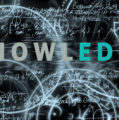



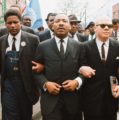
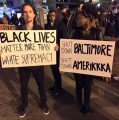

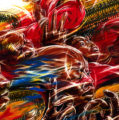
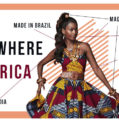
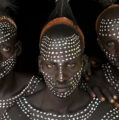

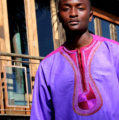

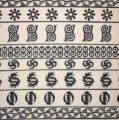
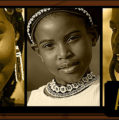
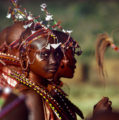


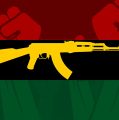
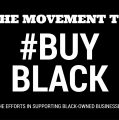
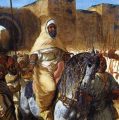
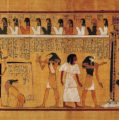
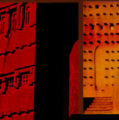
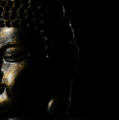
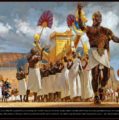
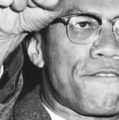
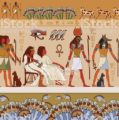
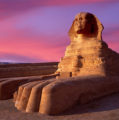
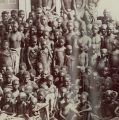
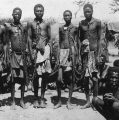
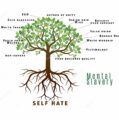
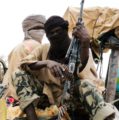
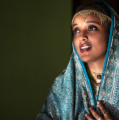


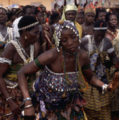




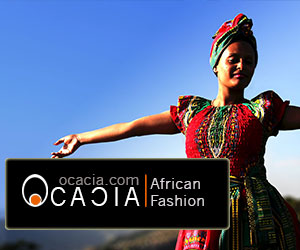











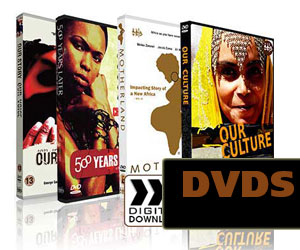






No comments so far.
Be first to leave comment below.